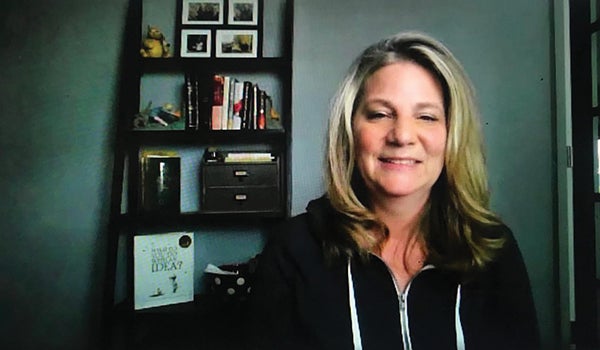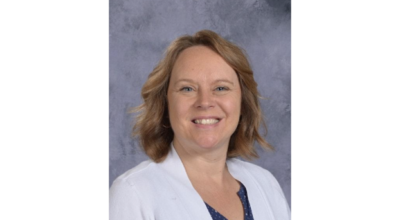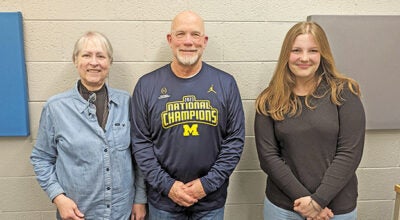Instructor offers ideas to keep children entertained through lockdown
Published 11:00 am Wednesday, April 15, 2020
|
Getting your Trinity Audio player ready...
|
DOWAGIAC — As face-to-face school closures were announced in March, parents made an overnight transition to becoming facilitators of their children’s education.
On April 2, Michigan Gov. Gretchen Whitmer issued an executive order for the provision of K-12 education during the remainder of the 2019-2020 school year. Dowagiac Union Schools continues to work on its new distance learning options, which will be due by April 28 and must be approved by the local intermediate school districts.
In the meantime, Ranee Conley, the early childhood director at Southwestern Michigan College, is encouraging parents to work with their children to understand meaningful learning.
Conley, who has been involved in public education since 1991, spent 17 years in Indiana schools working with children and families from preschool to middle school. She transitioned to a job with Lewis Cass Intermediate School District. She worked in several positions with special education before working at St. Joe County Intermediate School District, supervising Early On Michigan, special education and with the Great Start Readiness Preschool Program for 4-year-olds. Her path brought her to SMC, which she called her dream job and calling.
With experience in being a classroom teacher, consultant and supervisor, Conley has discovered a passion for building adult capacity to better support children.
Conley advised parents and caregivers to understand meaningful learning is contextual and functional and more than worksheets and lectures.
“We are being forced in many ways to think outside of doing what we have always done,” Conley said. “Like anything in life, that can be an opportunity to learn and grow and build resilience or amplify the challenges we are dealing with.”
Conley said a component of meaningful learning is understanding brain research. When people learn something, in order to be able to access that knowledge later, they must be in a state of psychological safety, she said.
“In many families right now, and I can relate, one or more of the caregivers in a child’s life has suddenly become unemployed,” Conley said. “The family as a whole is concerned about food and responsibilities, and that adds to that sense of psychological safety. Then there are all of the fears surrounding the pandemic itself.”
To create a space of psychological safety, Conley advised parents and caregivers to reach out and seek emotional support for themselves.
Additionally, Conley encouraged learning through teachable moments like learning about fractions by cooking in the kitchen and using measuring cups or exploring learning opportunities on electronic devices instead of focusing on children completing actual electronic worksheets.
“Let’s think about how we can learn about math, reading or writing or letters, all of those things whatever age we are at, in the context of functionally using them,” Conley said. “We can choose to write old fashioned letters and mail them, and that might be a way to help children develop their fine motor skills and their writing skills, those kinds of things, versus ‘oh no, I don’t have a worksheet.’”
Conley also advised families to use items and materials they already have in their homes, as well as check out resources from other agencies.
Conley said Lewis Cass ISD put together resources for the Great Start Readiness Preschool Program’s families that have gained positive attention in Cass County and beyond.
Conley is being trained in a curriculum called High Scope, out of Ypsilanti, Michigan, which is a research organization that develops curriculum rooted in problem solving and context learning, she said. This education is also used locally through preschool resources.
Overall, Conley hopes there are two takeaways from learning during the COVID-19 pandemic. One is understanding the emotional safety piece and how parents can teach children how to handle stress. This framework is also called conscious discipline, created by Dr. Becky Bailey and used in schools locally, Conley said.
She hopes people will see how learning is not about how a student completes a worksheet, but instead, how students solve a problem.
With students not returning to the classroom until fall, Conley said her question is not will children be ready for the school, but will the schools be prepared for the students.
“We will have all experienced a collective trauma on some level,” Conley said. “How kids come to us will, in some part, be how their families were able to support themselves and each other through their traumas. We need to potentially do some research-based soul searching on what we have always done that hasn’t been working anyway. What can we do differently so that kids and teachers are ready for kids no matter how they come to us and how we navigate the curriculum to support kids where they are at.”
Lastly, Conley advised parents and caregivers not to engage in competition and for the public to be supportive of parents.
“This is all about the kids, no matter what age they are,” Conley said. “It’s doing what your child needs in your home in the context of what you are dealing with. Kids are resilient. They will learn these skills, and we will find a way. What’s important is how kids remember this time when it has passed and what they learned about dealing with emotions.”







